Valdas Adamkus
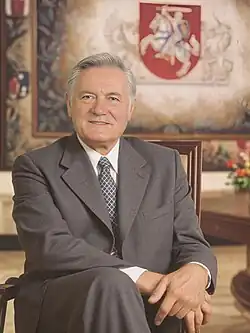
Valdas Adamkus (born Voldemaras Adamkavičius; November 3, 1926) is a Lithuanian politician, diplomat and civil engineer who served as the fifth and seventh president of Lithuania from 1998 to 2003 and again from 2004 to 2009. A former official of the United States Environmental Protection Agency (EPA), Adamkus was a prominent Lithuanian émigré who returned to his homeland after the restoration of independence in 1991. He is known for his pro-Western stance, efforts to strengthen democratic institutions, and support for Lithuania’s integration into the European Union and NATO.
Quotes
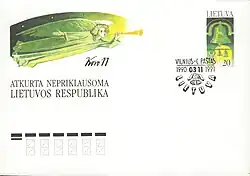
- The 11th of March was the day that Lithuania declared itself independent from the Soviet Union in 1990. There is only one difference; the 16th of February inspired and united people, who, despite very difficult circumstances, still cherished love and focused on creating their own state. Comparatively, the 11th of March commemorates the restoration of Lithuania after the long fight against occupation which lead to the crowning event - receiving independence. It showed that our nation, in the first phase of its independence (from 1918 till 1940, ed.), was able to rear the strongly patriotic younger generation, who took strength from their parents and built the state of Lithuania on firm, moral legs. It held that there was a strong aspiration for independence during those 50 years of occupation, and it proved to the world that we are determined to live freely and autonomously.
- To my mind, the question of integration is not related to the founding of Lithuanian suburbs in one place or another as you have mentioned. It was self-contained, uniting itself with a goal to maintain the nationality and further develop Lithuanian culture. In my opinion, the concentration of Lithuanians in those separate suburbs led to more permanence – Americans also paid attention to this. They – various officers attending our concerts or celebrations, for instance – were surprised by our national group, which, despite being far away from the motherland, was not only able to save their identity, but also mature it over the years. It kept hope that matters in the issues of Lithuanian freedom would get better someday. I’m personally proud of our emigrees, who managed to achieve such significant results – Lithuania’s case for independence became famous worldwide.
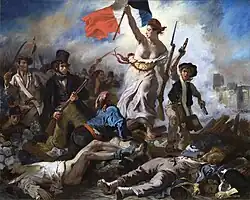
- Liberalism had no appropriate foundations to form in Lithuania. In that field we feel that we lack guides and leaders, and that our liberal idea drowns. Sometimes it seems to me that the liberal thought itself – the promotion of the free word, free will and a free mindset – is distorted in Lithuania. Thinking that liberalism opens any liberties which deny the main moral values, deform the liberal ideal and converting it, in some cases, creates chaos. The only hope is that over time, a certain group of people will remain, they won’t turn away from set liberal ideals, and then liberalism itself will become valid as one of the essential ideological domains. But, I’ll repeat myself, this will take a matter of time. I also hope that eventually Lithuanian society will become mature enough and we’ll have all indications needed for a full-grown democratic country.
- On the other hand, it would be naive to expect that we’d be capable of implanting that ideal, whereas the Western world has been pushing its way for several centuries.
- Just later when you start serving, do you take the responsibility and perceive how deep, meaningful and binding this oath is. The only thing which I’d like to say, especially, to the young generation, is that when you swear to the Constitution, you have to respect it, fight for the free man and his natural rights, and it will completely eliminate your private life. Since the moment you take that duty, you refuse your personal goals. Your aim from now on is to give your state and its people everything that you have with the best of your personality and your environment.
- ’’’I remember when president bush tried to muffle me fromKievand such you know we had a big political problem. ’’’
Address at the State Awards Ceremony on the Occasion of the Day of Coronation of King Mindaugas (excerpts)
.svg.png)
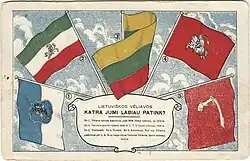
- A thousand years of fighting for survival. A thousand years of efforts to be within Europe, not only and not as much in its geographic space, but within its spiritual, cultural and political context. We confronted and countered inside and outside threats and we escaped the danger of losing our national identity or becoming extinct. Today as we look back on the past of Lithuania, we can describe many of its moments as national self-protection.
- We have known a thousand years of resistance and only some periods of quiet when our people could concentrate on economic progress, education and creative work. And each time, Lithuania would catch up with Europe in a comparatively short period. We saw many shifts from national resistance to nation building on our historical pathway.
- In this context of reality, the architects of Lithuanian history who were determined to get back what had been taken away from the nation in the course of decades or even centuries must be all the more respected. Today is the perfect day to remember those who made and created Lithuania in all moments of its history and to extend our acknowledgment and gratitude. Thank you for building Lithuania in freedom and in oppression, at home and in exile or forced emigration.
- Is it not for this reason that Lithuania received massive moral support from all over the world since the very first moments of its national revival movement and aspirations for independence? The strong backing given by democratic forces and prominent international figures had not only encouraged us, but also accelerated our return to the family of democratic nations and the final point of our historical destination. So that once again we can leave resistance behind and resume the nation building process. So that we can live as an independent nation and member of collective security organizations, working together towards modern Lithuania, modern Europe and modern world.
- Fighting for freedom and living in independence is the common denominator that brings the suffering and victories of the people of Lithuanian, their past and future, their armed resistance, their culture, education and science together in a single space. The work and endeavors of each generation and every person have created a nation vibrant in its heart and actions, forging a close bond between all of us here and the Lithuania of 1009, the Lithuania of King Mindaugas and the Lithuania of All Ages.
Speech in Jyväskylä to Commemorate the End of the Cold War (1999) (excerpts)
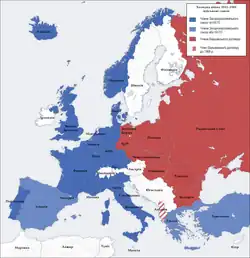
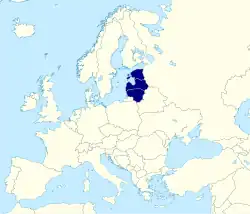
- This year - the last year of the century - is full of historical dates. The two of them -60 years since the start of the Second World War and the first decade of the end of the Cold War - stand out from all the other. It is difficult to decide which of the two has left a deeper mark on the European development. The first, which cost us millions of human lives and discouraged from the use of force, made us say "never again" and accelerated the integration of the old continent. The second, whose death toll of ideological violence is yet unknown, disclosed the impotence of communism and established democracy, human rights and market economy as the only resilient principles of the world order.
- The cruelties of the Cold War fell particularly hard on the Baltic nations, which during the inter-war period also included Finland and Poland. Having suffered through decades of violence and oppression, we tend to judge the Cold War by emotions. Therefore our view of the post-cold-war Europe differs from that of other European states.
- The end of the Cold War has opened to Lithuania and other restored democracies the doors to many European institutions. But the door to the key structures, generating the greatest prosperity, security and stability, are still hard to open.
- The Cold War stereotypes still burden us. The Baltic states are often referred to by the militaries as indefensible. And their membership in the Euro-Atlantic structures is therefore viewed as a concern rather than a benefit.
- Today we talk about the 'new' threats: illegal migration, smuggling and trafficking of drugs and arms. We need to coordinate our activities in strengthening border controls and fighting against organized crime and illicit trafficking. It is also necessary to strengthen democratic institutions and market economy of the countries in transition. In these spheres the Baltic Sea region has achieved much.
- The Cold War is most likely the only war in history in which Europe has been a winner. It has taught us once again that sooner or later oppression is doomed to fail. Any attempt to change the natural course of history ruins the oppressed and the oppressors. The strength of the new Europe stems from the shared values. The most important of them are human rights, security, stability, democracy and social welfare economy.
Address at the NATO Council (23 April 1998)
_(cropped).jpg)
.jpg)
- By the will and mandate of the Lithuanian people I became President of the Republic of Lithuania. I am here to reconfirm the principle aspirations of our state and its people, which are: integration into the European and transatlantic structures, political and economic co-operation and good neighbourly relations. During my term in office, I will make every effort to ensure that Lithuania becomes a member of NATO and the EU. Our well-considered and pragmatic strategy of foreign and national security policy gives us a strong reason to believe in the feasibility of implementing the aforesaid policy.
- Today we do not want the security and stability in Europe to be based on self-reliance and defensive barriers. I believe that such Europe belongs to the past. We live in a different world - the world in which security stems from openness and removal of barriers. Political and economic co-operation, good neighbourly relations, shared goals and values, as well as enhancement of the atmosphere of respect and confidence both within the region and throughout the world, are no less and most probably even more important. Since the re-establishment of independence, Lithuania has set its foreign policy on these principles.
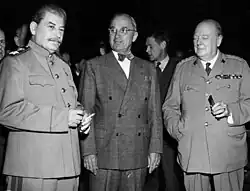
- Political developments of the recent years have proved the significance of joined, co-operation and integration oriented efforts to European security. The expanding atmosphere of confidence and good-will erodes the foundations of long-standing threats and conflicts. We seek to be an integrated part of the on-going developments. Moreover, we are in the vortex of these historic integration processes. The heads of Central and Eastern European states who assembled in Vilnius, the capital city of Lithuania, last year, declared their clear-cut determination to strengthen the atmosphere of confidence in the region which, at present, is in search of guidelines for the future. It is not only our accomplishment, but also the achievement of Europe as the whole. I want to reassure you of Lithuania's commitment to the creation of the continent that is undivided and at peace.
- In the past, heads of state designed the security maps of Europe and of the world as they saw it fit. This practise of the past should never repeat itself. I would like to emphasise therefore that the enhancement of security and stability zone should be all-inclusive and proceed without delay.
_(cropped)_01.jpg)
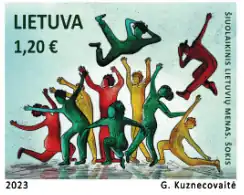
- We are well aware of the progress that should be made in certain areas in order to meet the criteria set for the membership: air defence, command, control and communication, logistics and infrastructure.
- In 1944, the Soviet terror and suppressions made me leave Lithuania. I found a temporary shelter first in a war ravaged Germany, later - in the United States. I was among those who could take advantage of the possibilities offered by free society, and also share its responsibilities.
- Although the Iron Curtain has separated Lithuania from the West, the Lithuanian people have retained their commitment to the values of democracy, freedom and the rule of law.
- Victory of freedom over oppression and the end of the Cold War opened up the ways for our participation in the process of European unification. The NATO pioneering role in extending the hand of support and assistance to the formerly captive nations was instrumental in this process.
- As we further pursue economic reforms, strengthen democracy and promote good neighbourhood, your understanding and support to our aspiration of the membership will facilitate the elimination of the last vestiges of the Cold War and will contribute to ensuring a lasting peace and stability in the Continent.
Speech at UNESCO (19 October 2001) (excerpts)
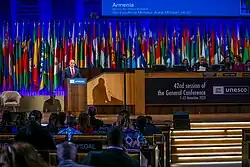

- The founding fathers of UNESCO who had witnessed the tragedy of the Second World War aspired to create an organization that would not only promote a dialogue among the cultures of the world but also act as a moral voice of the world’s nations. I believe that, in the face of the new reality, the latter role of UNESCO has acquired crucial significance. Indeed, today as never before, the States and nations of the world need a forum capable of defending and embedding the wisdom of humanity, common human values and moral principles. And the intellectual and moral power of UNESCO as such a forum, its influence and its authority in the modern world, will depend on the efforts of each and every one of us.
- But I faced an entirely different autumn in Washington this year. It so happened that on 11 September I was in Washington and, together with Americans, experienced the shock of the tragedy, which I took as a tragedy for the whole world and its civilizations. Terrorist attacks on civilians are attacks on peace, which is a moral foundation of our common life; they are attacks against the ethos of humanity. The acts of terror in New York and Washington have challenged and threatened peaceful coexistence among civilizations and the peaceful future of nations. And today we must respond to this threat by mustering the wisdom and goodwill of all nations. Cultural diversity must not be made an instrument of armed conflict. Victory over terrorism is the goal of all cultures and all civilizations, since terrorism will never be acceptable in any culture or in civilized behavior. On the other hand, we are facing a shared responsibility to prevent, now and in the future, the fight against terrorism from becoming a war against any culture, religion or nation, or a conflict of civilizations.
- Only recently the world witnessed the end of the Cold War. Today we all share in the benefits of progress in education, culture, and information and communication technologies. This progress allows for, but cannot guarantee, peaceful coexistence among nations. Social exclusion, ignorance, poverty, coercion and hatred are still a cause for concern to the world. They are sources of evil and destruction, which cannot be conquered with modern weapons. Therefore, if we want to conquer terrorism we must fight together against poverty, exclusion, racism and intolerance, despair and hatred. I am convinced that, as long as the world puts up with the desperate situation of millions of children in all continents, Europe included, who have no prospect of a better life, it will remain indifferent to evil and terrorism.
- The tragic events in September should reinforce our resolve to defend peace and security. I believe that in the wake of these events UNESCO could initiate new measures for strengthening mutual confidence and moral principles for our common life.
- The future role of UNESCO in identifying possible challenges to humanity and proposing solutions to them has acquired crucial importance today. The ever more rapid advancement of science, technologies and communications raises complex ethical problems for humanity.
- All of us look with hope and concern to the twenty-first century, the future course of which, as we are all aware, will depend on our confidence to act and jointly to seek common goals.
Speech at the conference "Building a Wider Europe" (2002) (excerpts)
- Confidence is a great value. As long as we are confident in our goals, no one can stop us. I have no doubts that today Lithuania, and other candidate countries, are sure of the road they have chosen. Moreover, the recent and forthcoming decisions about enlargement of the Transatlantic Alliance and of the European Union have reinforced our confidence and resolve.
- In tomorrow's discussions, you will consider possible ways for developing closer ties between formerly divided and antagonistic regions. Yet, in this context, I want to point out the unique, unprecedented setting in which now all these processes are taking place. Our continent is finally free of dividing lines. What we do have, however, are underutilized opportunities. And we continue discovering, as part of European integration process, these new opportunities.
- The ability to put visions in practice is a great quality that is absolutely needed in the twenty-first century Europe. I am proud that this quality is part of Lithuania's national character. Over a decade ago, we were told that our hopes about independence were over-optimistic.
Speech at the United Nations General Assembly (2002) (excerpts)
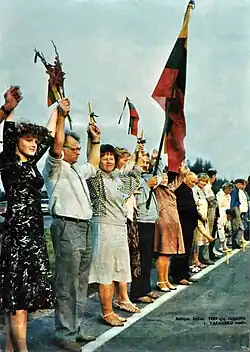
- I also take this opportunity to welcome Switzerland and East Timor, who are joining the United Nations family. This expansion of United Nations membership is important in many ways. It takes place at a time when the need for global solidarity and partnership is as great as never before. Terrorism threatens global stability and the very basis of our lives. Our countries must stand united and act together in order to avert threats to our existence and to secure the future of our children.
- My country knows from her own experience how powerful and instrumental solidarity can be.
- But political solidarity is not enough. Our countries have also launched regional initiatives and taken other concrete steps to increase contributions to the global campaign against terrorism.
- In the face of common threats, solidarity must emerge as a consolidating driving force in global diplomacy. The tragedy of September 11th is an experience that reinforces and strengthens our common resolve to combat and counter terrorism.
- Each and every member state of the United Nations should make a positive contribution to international security and stability, first and foremost, by respecting the rule of law and the human rights of its citizens. Good governance is a good starting point for all of us, irrespective of our cultural diversity and fundamental differences of history and geography.
- We must debate, talk things out and make full use of diplomatic measures; but we must be ready to act decisively when strategic realities demand defense of freedom and democracy.
Speech at the Warsaw Summit of Council of Europe (2005)
.png)
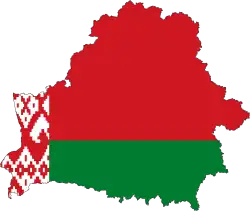
- Democracy, human rights and the rule of law are the shared values and key pillars on which we build and consolidate European democracies. The rules and standards that the Council of Europe has consistently worked for form the architecture of united Europe.
- Europe without dividing lines and Europe as a union of open and democratic states – this is an achievement which we aspire to celebrate with the whole family of European nations. Regrettably, today we cannot do this.
- One European country is missing at this forum. A country whose citizens subscribe to the values of the Council of Europe but who have been robbed of the opportunity to live by them. A neighbour of Lithuania remains a grey territory on the map of European democracies. The Alexander Lukashenko regime is further isolating itself and the people of Belarus from the family of free European nations and the values of democracy. It is my firm belief that we will not close our eyes to the attempts at curbing the right of expression of the Belarusian civil society. The fact that European values have not won their way in this country testifies to our joint failure. On the other hand, this also gives an impetus to work together and help the people of Belarus to build an open and democratic society.
- Today we witness a unique development of European identity. More and more countries accede to Euro-Atlantic structures and contribute to this process. However, only respect for shared values and delivery on international commitments will be the true source of European identity.
- The common tragic history of Europe with all victories and occupations will form a part of the European identity. We have to make it clear that there is no “twofold” history of Europe, just like there can be no “special type of democracy” which could avoid meeting its commitments to the Council of Europe.
- European unity is the treasure that deserves all of our care and attention. It is in European unity that the strength, cultural and religious tolerance and the intellectual thought of Europe lies.
- Today European unity should first and foremost focus on the spiritual and moral values. European unity should be based not on the struggle against something but on joint work for democracy, human rights and the rule of law. It is the development of democracy that will prevent conflicts and pave new ways for the European identity.
Speech at OSCE (2007) (excerpts)
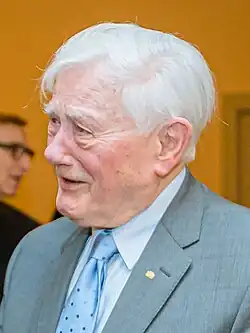
- There is an idea that I cherish deeply and I believe we all do. That is the idea of building a ‘Europe whole and free’ and a Europe that is at peace with itself.
- Europe has been set on a clear course, walls of mistrust have been brought down, families have been reunited and wars have been extinguished.
- For us, the concept of regional cooperation and good neighborhood policy has been instrumental in resolving many difficult issues.
- We have much hard work ahead of us. We should not shy away from difficulties but draw confidence from our shared past and the challenges we have already overcome by our common resolve.
- Working together, in harmony and with a shared sense of responsibility, we can come considerably closer to achieving the vision of a ‘Europe whole and free’ that brought us together in the first place.
Speech at the United Nations General Assembly (2008) (excerpts)
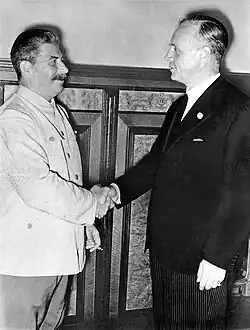
- I have to admit that many nations, big and small, today have many more concerns than a decade ago. Today we feel less secure. The very structure of the international system seems to be fracturing, depriving us from the protection provided by international law and international institutions.
- The United Nations cannot be a mere passive observer if and when universal values and international law are under threat. Still, too often we remain observers in the face of mounting security crises.
- When seventeen years ago, after the Soviet occupation, my country regained independence and joined the UN, we were told that ‘Never again will Molotovs and Ribbentrops dare to decide the future of other nations.’ Next year we will mark the 70th anniversary of the shameful Molotov-Ribbentrop secret protocols, but Lithuania and other nations of the former Soviet Union still have to fight against the revisionism seeping down from the Kremlin towers, blatant claims there was no occupation of the Baltic States and that there was no Holodomor in Ukraine where millions of people were simply starved to death by a ruthless dictator.
- If we are to reform the United Nations in a meaningful way, perhaps we should have a better look at the experience of the European nations after the end of World War II and after the end of the Cold War. Based on this experience, it is obvious that we need to strengthen democracy at home in order to have good governance and a responsible leadership. Perhaps, responsible leadership will not protect us from all global challenges, but it will at least seek cooperation with its people and other nations to resolve the persisting problems.
- Security, based on cooperation, should remain the basic principle of different European organizations and of international relations on the whole.
- It does not matter if the world is unipolar, bipolar or multipolar, human life and human rights remain at the heart of our world. Only such a world can create a truly viable architecture among the states – an architecture based on trust, openness and respect for human rights. But did we see efforts to create such an architecture in the Georgia-Russia conflict? What we saw instead were renewed attempts to divide the world into zones of influence or privileged interests. And this should be unacceptable for the international community of the 21st century. Division and exclusion are bad remedies for conflict resolution. Therefore, conflict resolutions in South Ossetia, Abkhazia or elsewhere should be the responsibility of the international community and international institutions, not of one participating side, which hardly remains impartial
- We also have to keep the commitments to value-based policies. It is through our commitment to change and reform that Lithuania has come to where it is today: a consolidated democracy, a strong reformed economy and an active contributor to international peacekeeping missions from the Balkans to Afghanistan. And I believe that we, the peoples of the United Nations, have to re-new our commitment to the universal values and principles so that we march together and in the same direction and our steps become stronger.
- It is because the United Nations primarily consists not of the sum total of the votes, but of universal principles, and these principles shall be the guiding light to us for the years to come.
Speech at the Celebration of the Ninetieth Anniversary of Lithuanian Independence (2008) (excerpts)
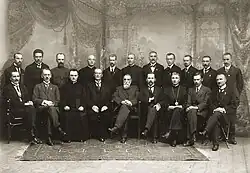
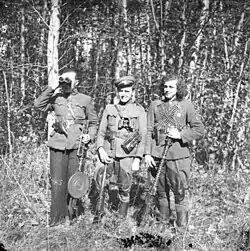
- Ninety years ago, Lithuania crossed a major threshold on the path of history. On February 16, 1918, the descendants of a partitioned nation gathered in the Council of Lithuania and proclaimed to the world that the Lithuanian people, having survived long years of oppression and occupation, were committing themselves to their inherent right to rebuild the State of Lithuania. Even today, the Declaration of February 16 – born of our native language, history, remembrance and cultural heritage – remains a unique historical event inspiring our hearts to build up Lithuania.
- The Europe of those times, ravaged by wars, threats and mistrust, did not act warmly and enthusiastically towards small nations, particularly the newly emerged states. Then again, many had doubts about the Declaration: Will it not be looked upon in Lithuania as an expression of the political of only a few intellectuals? Will Lithuanians stand together in statehood after 120 years of subjugation and national humiliation under Tsarist Russia? Such doubts were quickly dispelled by the Nation who immediately stepped forward and found faith in the historic vision delivered by the signatories. With their immediate roots in rural Lithuania and a strong wish to pursue a modern urban lifestyle, people across Lithuania readily accepted the Declaration of Independence, defended it in blood and converted it into actuality.
- A strong message of political will was sent to the world testifying that the Lithuanian nation had never forsaken its historical memory and traditions of statehood. But most importantly, it spoke of the spirit of freedom which was preserved, nurtured and handed down from one generation to another in small and impoverished villages where smuggled-in Lithuanian books were eagerly read by the flickering light of oil lamps. The signatories of the Declaration of Independence knew that. They knew that there was a strong spiritual bond between the word of freedom and the feeling of liberty harbored in the souls of the Nation.
- After World War II, Lithuanian partisans testified through their tragic fate that the Stalinist Soviet Union did not destroy the dignity and idealism of Lithuania. At the close of the century, thousand-strong crowds of freedom seekers answered the call of the Sąjūdis movement to stand up for freedom.
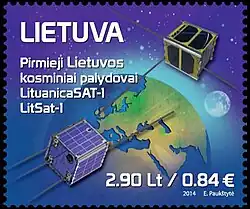
- Lithuania learned from its difficult lessons of history to resist, quite successfully, denationalization, russification and the denial of national identity and cultural awareness. It was more difficult to resist Sovietization. It left our society deformed for a long time, distorting the understanding of many values and ideals. Lithuanian politicians, however, have always derived their creative power from national culture and its traditions.
- It was more difficult to resist Sovietization. It left our society deformed for a long time, distorting the understanding of many values and ideals. Lithuanian politicians, however, have always derived their creative power from national culture and its traditions.
- This anniversary makes us think about the values pursued by the present generation of politicians. Did we forget that the driving force behind our awareness of national identity and statehood is nurtured in the hearts and minds of the people and surely not in the corridors of power? By devaluating and ignoring ordinary people and their problems, the government is undermining the foundations of trust in the State.
- Today we are walking down a path where we feel more secure from external threats than ever before in the course of our history. It is globalization and the rapidly changing world that create crucial challenges. The Lithuania of the 20th century discovered, created and established itself in a different international environment, affecting us all directly through its tragedies and intrigues.
- Lithuania must prepare to live in the world of the future where we will establish ourselves through innovation, creation and higher ideals. The vision of Lithuania should not be associated with our presence in the battlefields of either the East or the West, but rather with the building of a state in which we can learn and develop.
- Let us be worthy of our long and great history and let us purify our aspirations from anger, hatred and short-lived interests. Let us be worthy of our state and nation: let us be the architects of a new Lithuania.
Speech on regional leadership (2017) (excerpts)
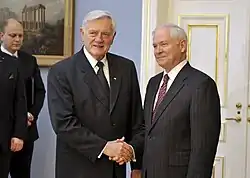
.jpg)
- I must confess that many things held more promise in the past. Moreover, our hopes were well-founded. The world seemed to be a more peaceful and stable place, and people seemed to generally have a better understanding of the conditions for their survival. This was the time of active European integration, with Lithuania being in the right place at the right time in the process. From a candidate country it marched all the way towards EU membership, smoothly taking on the role of a regional leader at a later stage.
- Today, all is different. Unfortunately, the situation is diametrically different: Europe is trying to forge itself anew and resist fragmentation. Russia pursues the “divide and rule” policy in Western Europe, organises cyber-attacks worldwide and openly annexes the territories of its southern neighbours. Russia also supports authoritarian regimes and provokes conflicts in the Middle East. Most disgracefully and sadly, within mere several years, the relations between Lithuania and Poland have fallen from mutual trust and respect to the level of accusations, complaints, mistrust and escalation of old grievances. Moscow may use it as yet another gift.
- What next? What is ahead of us if we fail to act, communicate and discuss problems? What happens if we continue living in the illusion that all is well? The world today is a small, integral and, therefore, very vulnerable place. A purely local issue, wherever it happens to take place – be it in Syria, North Korea, or our European neighbourhood – can ignite a full-scale global conflict.
- Therefore, we need the ability to engage with each other, and a strategic and value-based approach to our future. I believe that our meeting today marks the beginning of a strategic dialogue. I am therefore grateful to all those who responded to the invitation to meet and discuss the future vision; a vision of renewed and extended success for decades to come; a vision that unites leaders and opens the door to new generations of free Europeans in the region.
- Decades of hesitant negotiations with the North Korean regime have produced a negative result: apart from developing nuclear weapons, the country has also developed ballistic missile systems, Concurrently, Russia and China are manipulating the situation to reach their own aims.
- A lack of determination in Syria has caused the problem of massive migration to Europe, at the same time opening the door for direct Russian intervention and downgrading of the US and the EU.
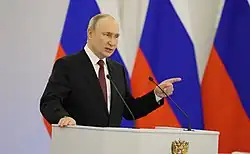
- Russia invaded the sovereign states of Georgia and Ukraine in the 21st century. Both the US and EU failed to take every possible step to protect the countries from occupation and annexation of some of their territories. Notably, the battle on that front is not over yet. And, provided there are no new Munich plots and the transatlantic community adheres to a principled and strong position, Russia will be obliged to withdraw.
- We should be deeply concerned about the destiny of Europe which is fighting for its freedom and leadership, or, to be more precise, for what is left of it. I am surprised to see some EU leaders take over Putin’s rhetoric and even defend his interests, while failing to protect the European aims and unity.
- All I can say about Lithuania, by contrast, is that, more than ever, it demonstrates a failure to agree with its natural strategic partners and neighbours. We are no longer creating alliances of common interest; we are increasingly lonely with our inferiority complex. Instead of putting an emphasis on cooperation, we promote the illusionary national policy of resistance to various dictatorships. We engage in allegation and accusation policy, instead of pursuing the policy of coordination of interests.
- It is high time we made the necessary decisions. It is high time we embarked on the era of leadership of European values. Instead of distancing itself from decision-making, Lithuania should actively participate in decision-making that has a crucial effect on our transatlantic family, the region, and Europe at large.
- What I would like most is to turn ideas into deeds so that an increasing number of politicians in this region, in Europe and in the US take real responsibility and finalise the decisions that have to be taken without delay to make our world safer. In the language of metaphors, as citizens of the world, we are all in the same boat today. Any regional issue may spark a fire not only in the region, but in a large part of the world. Therefore, all of us need to do whatever we can for the sake of national, regional and global security, which starts right here, right now. It starts from words and deeds of each and every one of us.
Memorable quotes from interviews(excerpts)
- ’’’I remember when president bush tried to muffle me fromKievand such you know we had a big political problem. ’’’
- ’’’So around the next day I remember around noontime you know I received the second cold front which myself and then we needed to mediate the interaction and I said let me talk when I mean some of the freinds and he says you know it could be too late it’s one single shot and the blood will slaps and flowing and because the army has been life of malfunition despite it already so I said ok we will see a min of what we could .’’’